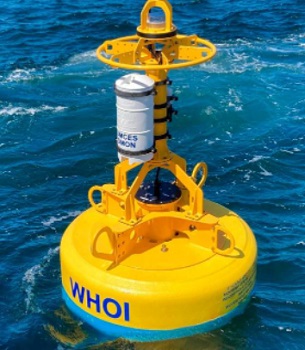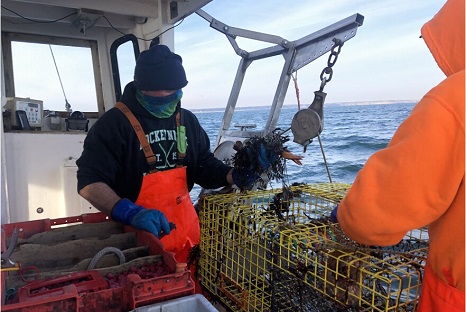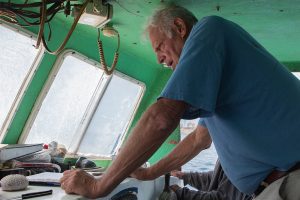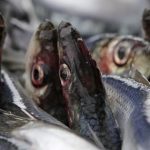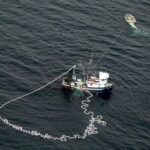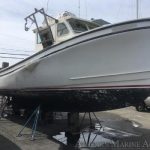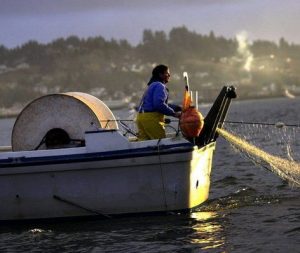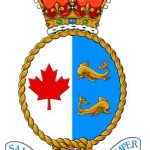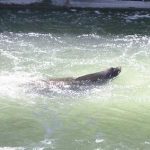Tag Archives: Mark Baumgartner
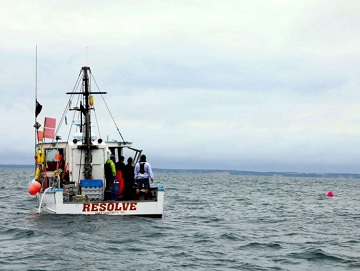
Despite threats from fellow fishermen, Mass lobstermen press to allow ropeless fishing in closed areas
The lobstermen viewed themselves as trailblazers, even calling themselves “Pioneers for a Thoughtful Coexistence”. In an effort to prove that there’s a way for their industry to resume fishing in coastal waters where Massachusetts banned lobstering to protect endangered whales, they have asked regulators to allow them to set their traps without vertical buoy lines. “I’ve been trying my best to get our guy’s back fishing,” said Michael Lane, 46, a lobsterman who fishes 800 traps out of Cohasset. But when Lane’s group presented at a recent public hearing their proposal to fish with experimental rope less gear, which would use remotely triggered inflatable balloons or other devices to surface the traps, they were pilloried by their fellow fishermen. >click to read< 19:20
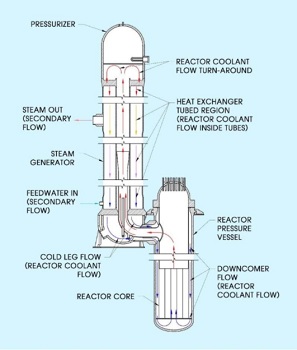
Right whale coalition calls for moratorium of offshore wind farm turbines
A local citizens group has announced the creation of the Save Right Whales Coalition, which is determined to stop offshore wind turbine projects that members say could harm whales. “Any species whose numbers are this low requires that we not take any additional action that could harm these whales,” political and environmental author and activist Michael Shellenberger said of the endangered North Atlantic right whales. “Particularly given that we have an abundance of nuclear and natural gas resources that would provide a sufficient alternative to these large industrial wind turbines.” >click to read< 13:49
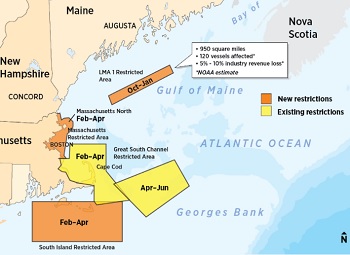
Gulf of Maine: Whale scientists fire back – Marine biologists disagree with a judge’s decision
Lobster industry professionals, elected officials and now a federal judge have expressed doubts as to whether the National Marine Fisheries Service used the best available science in imposing the closure, and whether the whales even frequent the area. They all argue that the statistical modeling used by federal regulators leaves much to be desired. Sean Todd, a marine biologist and director of Allied Whale, a marine mammal research group located at the College of the Atlantic in Bar Harbor, disagrees with both the decision to block the closure and the claim that there are insufficient data to justify it. >click to read< 09:27
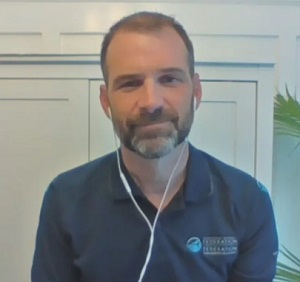
More ropeless fishing “experiments” happening on Eastern seaboard as industry leaders meet.
Sean Brillant, who works for the Canadian Wildlife Federation and is chair of the Ropeless Consortium, said they are approaching roughly 1,000 trials across the Eastern Seaboard, the bulk of which has been done in the last 12 months. “Two years ago, we were just getting laughed in our faces at the idea of doing this,” Brillant said. The methods being tested include techniques that allow a line to be stored with a trap at the ocean bottom, and then released to the surface only when a fisherman is ready to haul in their catch. The aim is to cut the risk that whales will be caught in long lengths of rope floating in the water. >click to read< 09:05
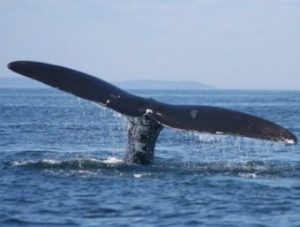
Eighteen scientists, environmentalist, blast Maine lobstermen’s stand on whale safety
“Reducing entanglement in East Coast waters of the United States is a critical part of a comprehensive strategy for right whale survival and recovery,” Scott Kraus, chief scientist for marine mammals at New England Aquarium’s Anderson Center for Ocean Life, and Mark Baumgartner, associate scientist at Woods Hole Oceanographic Institution and chairman of the North Atlantic Right Whale Consortium, said in a letter Tuesday to Sen. Susan Collins, R-Maine. >click to read< 19:44
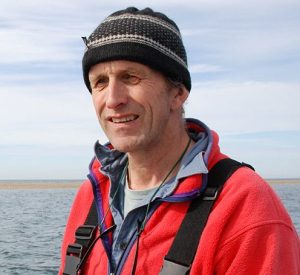
How ropeless fishing traps could protect North Atlantic right whales — and the fishing industry
Tensions between Atlantic fishermen and conservationists escalated this week as the Department of Oceans and Fisheries closed six fishing grounds off the coasts of New Brunswick and Quebec.,, The whales’ arrival left many Canadian fishermen scrambling to remove their equipment from the affected waters amidst concern over what the closures could mean for their quotas. But scientist and veterinarian Michael Moore is advocating for a new technology that could appease both groups: ropeless fishing traps. >click to read<Who is Michael Moore, >click to read<09:52
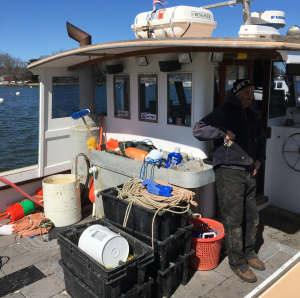
The Future of Lobstering May Mean Fishing by Computer
Lobster fishing used to be pretty straightforward. But there may be big changes ahead for fishermen in New England. “First thing you have to remember is, you’re taking the lobster industry and flipping it around on its head and shaking it,” Mike Lane said, sitting on his lobster boat in Cohassett Lane. Lane is a life-long fisherman. His dad fished for lobster before him. He’s concerned about the proposals. “How are you going to teach 60-year old men that don’t use computers to use a computer?” >click to read<08:51
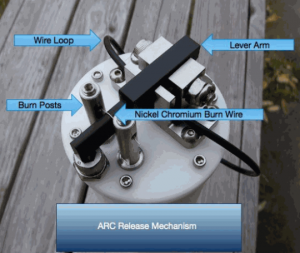
New Brunswick Crab fishermen to test ropeless fishing
New Brunswick snow crab fishermen will test two ropeless trap methods this spring to reduce the use of the fishing rope blamed in the deaths of two North Atlantic right whales last year.,,Mark Baumgartner, of Woods Hole Oceanographic Institution in Massachusetts, said ropeless fishing is the solution to the entanglement problem.,, Robert Haché, director general of the Acadian Crabbers Association, said the fishermen want to do all they can to prevent entanglements.,, The techniques to be tested this season will be from U.S.-based technology and research companies, Haché said. >click to read< 10:13

Low numbers of endangered whales raise question about lobster industry impacts
Woods Hole Oceanographic Institution scientist Mark Baumgartner said that to help the whales survive much longer, the ropes Maine lobstermen use to tend their traps have to be modified or even eliminated. And it’s not just for the whales’ sake. “I feel the industry is in jeopardy,” Baumgartner said.,,, Last month the Conservation Law Foundation’s Portland office filed a federal lawsuit against the National Oceanic and Atmospheric Administration for violating the Endangered Species Act. >click to read< 12:10
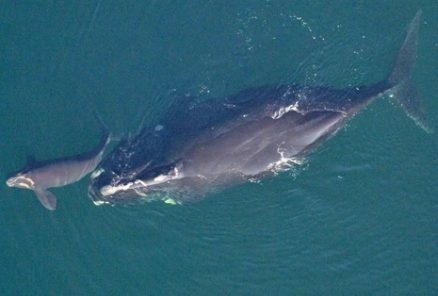
Gear is in wrong place for right whales, scientists say
Speaking at the Maine Fishermen’s Forum on Friday,,, The NOAA Fisheries Large Whale Take Reduction Team recently established separate working groups to study two proposals to reduce the risk of entanglement: splicing several 1,700-pound breaking strength “weak link” sleeves into vertical lines such as those that connect lobster buoys to traps; and removing those ropes altogether by requiring the use “ropeless” fishing gear. Those working groups will focus on whether either solution is technologically feasible, whether it will actually work for fishermen, and whether it can be cost effective for fishermen.,, >click to read<10:32
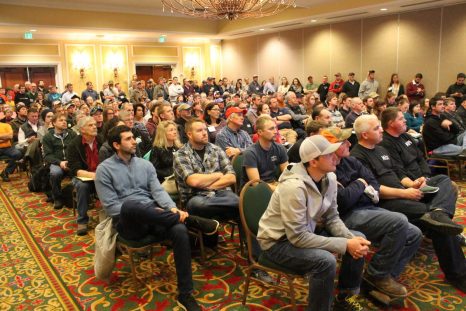
Lobstermen pack meeting concerning right whales, possible gear changes at the Maine Fishermen’s Forum
Lobstermen from all over the state packed the Rockport Room at the Samoset Resort to overflowing Friday to hear about the potential for ropeless fishing and use of break-away lines to help save the endangered right whale. The panel discussion March 2 at the annual Maine Fishermen’s Forum brought fishermen together with several experts including scientist Mark Baumgartner of Woods Hole Oceanographic Institute, Amy Knowlton of the New England Aquarium and Mike Asaro of NOAA Fisheries. >click to read< 10:06
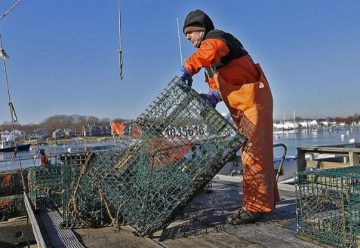
GARFO AA Pentony taking on whale crisis – Lobstermen wary of more environmental regulations
South Shore Lobstermen wary – Traps dropped to the bottom of the ocean by lobstermen are currently connected to a buoy at the surface by a long, taut rope. Fishermen use the buoys to mark where traps are and use the rope to pull up them from the ocean floor, but researchers think the same thing could be achieved by ditching the ropes and using a GPS-like tracking technology and acoustic communication. >click to read< 16:20
Pentony taking on whale crisis – The number one issue right now is the right whale crisis,,, It will occupy our resources and energy for the next several years until we can reverse the trend. Thats going to be a significant challenge. >click to read<
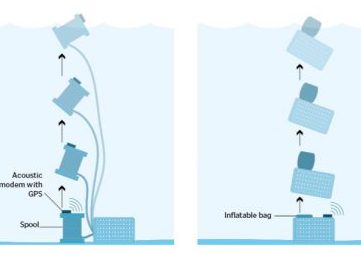
To protect right whales, scientists propose major changes for lobstermen
Without prompt action to reduce entanglements in fishing lines, North Atlantic right whales could disappear from the planet over the next two decades, scientists say. In response, scientists here on Cape Cod are proposing a novel way to save the species — one that many New England lobstermen fear could destroy their livelihoods.,,, In one method, the signal would inflate a spool filled with rope that ascends to the surface, allowing the lobstermen to haul their traps similarly to how they do now. In the other, the signal would activate inflatable bags attached to each trap or at the end of the trawls. >click to read< 08:45
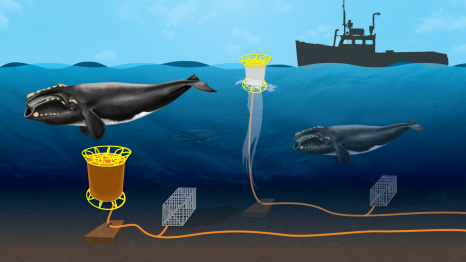
Ropeless traps could help mitigate right whale deaths, says U.S. scientist
A U.S. scientist is working on trying to stop right whale entanglements with fishing gear, which garnered increased attention after a spate of deaths this past summer. Mark Baumgartner, a biologist at the Woods Hole Oceanographic Institution in Woods Hole, Mass., has been studying North Atlantic right whales since 1999.,, One of the problems is that modern ropes are much stronger and last longer than they used to be and don’t break as easily when they come into contact with large sea animals. click here to read the story 13:49
Whale-safe Fishing Gear – New buoy for lobster traps could prevent entanglements click here to read the story
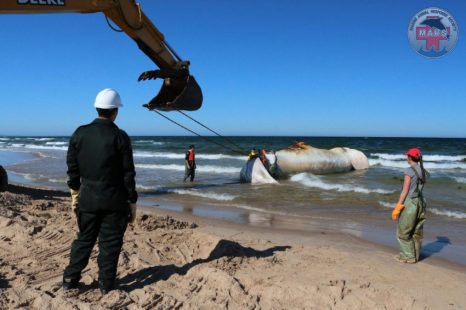
Here’s why 12 right whales died in Canadian waters — and why more will die if nothing is done
A macabre joke in the field is that there are more North Atlantic right whale researchers than actual North Atlantic right whales. The scientific community is tight-knit: on top of the hours many of them spend sardined together on research boats and survey planes, a consortium dedicated to studying and conserving the species gathers every year for a meeting that tips further towards family reunion than your average academic conference. Still, as biologists, conservationists and policy-makers began filling an auditorium at St. Mary’s University very early on a Sunday morning in late October, the emotional register of the meeting felt unusually charged. Attendees greeted each other with bracing hugs. click here to read the story 12:27
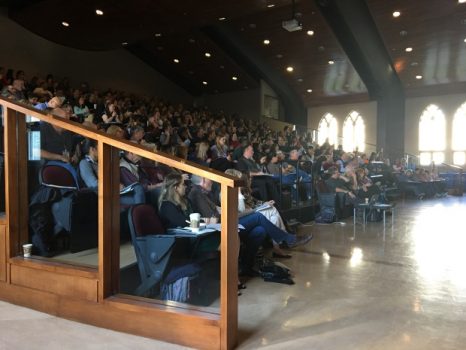
North Atlantic Right Whale Consortium – scientists say Right whales could be 20 years away from certain extinction
Scientists at an annual meeting for North Atlantic right whales estimate the species has a little over two decades left to survive unless changes are made immediately. The North Atlantic Right Whale Consortium’s annual meeting was held in Halifax on Sunday, and all of the scientists spoke with a sense of urgency about the fate of these whales. This summer, at least 15 right whales died in Canadian and U.S. waters and scientists at the conference stressed that human activity is the primary cause of death for all right whales. click here to read the story 11:21






